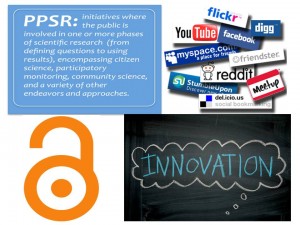 Clean Sky JTI Workshop and Information Day: The Clean Sky Joint Technology Initiative (JTI) will be holding a workshop on selected topics of the Clean Sky Call for Proposals 11 on 19 January and an information day on the Clean Sky Call for Proposals 11 on 20 January. Both events are in Brussels, with free participation, but registration is compulsory. The workshop on selected topics of the Call will focus on those topics which are critical to the progress of the programme or are complex. Applicants will have the opportunity to seek clarification on the list of selected topics. The information day on the Clean Sky Call for Proposals will include presentations on the topics included in the calls; discussions on the evaluation procedure and contractual agreements; and advice and tips on submitting a successful proposal. There will also be the opportunity to have a short meeting with Clean Sky Joint Undertaking staff during the information day.
Clean Sky JTI Workshop and Information Day: The Clean Sky Joint Technology Initiative (JTI) will be holding a workshop on selected topics of the Clean Sky Call for Proposals 11 on 19 January and an information day on the Clean Sky Call for Proposals 11 on 20 January. Both events are in Brussels, with free participation, but registration is compulsory. The workshop on selected topics of the Call will focus on those topics which are critical to the progress of the programme or are complex. Applicants will have the opportunity to seek clarification on the list of selected topics. The information day on the Clean Sky Call for Proposals will include presentations on the topics included in the calls; discussions on the evaluation procedure and contractual agreements; and advice and tips on submitting a successful proposal. There will also be the opportunity to have a short meeting with Clean Sky Joint Undertaking staff during the information day.
 2012 EU Research Forum Stakeholders’ Conference on Research and Social Innovation : The European Foundation Centre (EFC)’s Research Forum will hold its next Stakeholder’s Conference in Barcelona on 9-10 February 2012.The theme for the conference will be ‘Research and social innovation: the potential for European foundations to pave the way’. The conference will include sessions on:
2012 EU Research Forum Stakeholders’ Conference on Research and Social Innovation : The European Foundation Centre (EFC)’s Research Forum will hold its next Stakeholder’s Conference in Barcelona on 9-10 February 2012.The theme for the conference will be ‘Research and social innovation: the potential for European foundations to pave the way’. The conference will include sessions on:
- The potential for foundations to spearhead socially innovative research;
- The impact of social media and networks on research and social innovation;
- Open Access and the challenge of quality assurance; and
- Public participation in science: new modes of interaction.
Registration is on the European Foundation Centre’s website.






















 Missing Persons Indicator Project Recruitment
Missing Persons Indicator Project Recruitment Celebrating our Research: Postgraduate Research Showcase 2026
Celebrating our Research: Postgraduate Research Showcase 2026 Nursing Research REF Impact in Nepal
Nursing Research REF Impact in Nepal Fourth INRC Symposium: From Clinical Applications to Neuro-Inspired Computation
Fourth INRC Symposium: From Clinical Applications to Neuro-Inspired Computation ESRC Festival of Social Science 2025 – Reflecting back and looking ahead to 2026
ESRC Festival of Social Science 2025 – Reflecting back and looking ahead to 2026 3C Event: Research Culture, Community & Cookies – Tuesday 13 January 10-11am
3C Event: Research Culture, Community & Cookies – Tuesday 13 January 10-11am ECR Funding Open Call: Research Culture & Community Grant – Application Deadline Friday 12 December
ECR Funding Open Call: Research Culture & Community Grant – Application Deadline Friday 12 December MSCA Postdoctoral Fellowships 2025 Call
MSCA Postdoctoral Fellowships 2025 Call ERC Advanced Grant 2025 Webinar
ERC Advanced Grant 2025 Webinar Horizon Europe Work Programme 2025 Published
Horizon Europe Work Programme 2025 Published Update on UKRO services
Update on UKRO services European research project exploring use of ‘virtual twins’ to better manage metabolic associated fatty liver disease
European research project exploring use of ‘virtual twins’ to better manage metabolic associated fatty liver disease